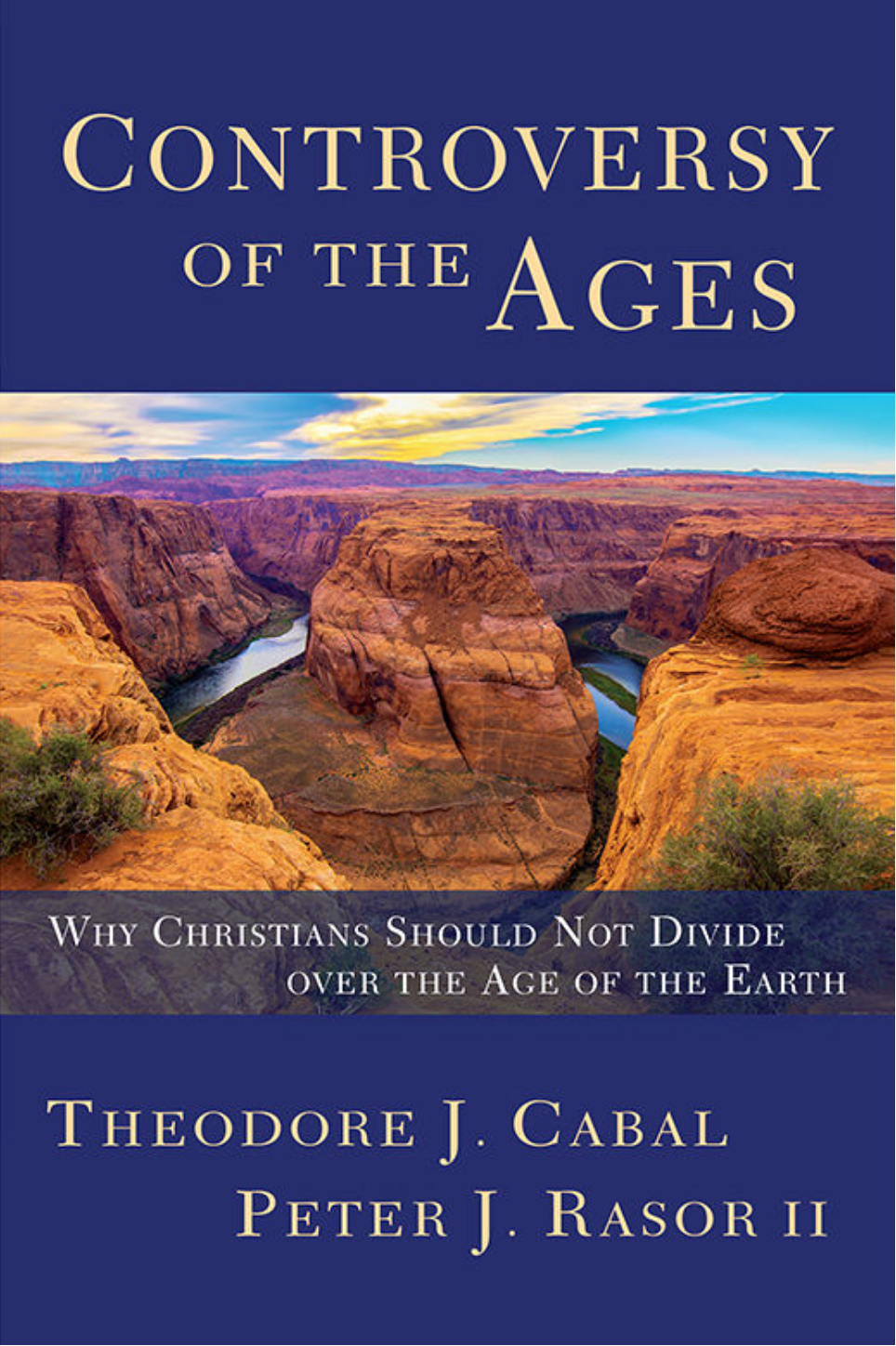Controversy of the Ages
Has the development of science lead to the decline of Christianity? Does a belief that the Earth is old require accepting evolution or rejecting the words of the Bible? How should Christians deal with new scientific discoveries that appear to threaten what the Bible says?

If you wrestle with any of these questions, then I wholeheartedly recommend that you read Controversy of the Ages. This great book by Ted Cabal and Peter Rasor explores the age-of-the-Earth debate in the Christian community and provides some much needed historical and theological perspective. Cabal and Rasor highlight three important points that should become common knowledge for everyone engaged in science-faith discussions.
The Intellectually Discredited “Conflict Thesis”
First, research in the history of science shows the bankruptcy of the idea that science and Christianity are now and have always been in conflict. Those wanting to perpetuate the idea of inherent antagonism between science and Christianity (known as the “conflict thesis” or “warfare model”) usually trot out Galileo and Darwin to demonstrate their point. However, focusing on these two examples obscures the “largely independent, mutually encouraging and even symbiotic”1 interaction of science and Christianity. In fact, one historian writes that “it is salutary to note that serious historical scholarship has revealed the conflict thesis as, at best, an oversimplification and, at worst, a deception.“1
Old-Earth ≠ Evolution
Christians who accept a billions-of-years-old Earth are often charged with compromise, taking man’s word over God’s, and accepting evolution (and all its philosophical and theological implications). One prominent young-earth ministry stated it this way: “In other words, biological evolution is only one small part of a much larger evolutionary story, the same story from which deep time comes, and which old-earth creationists accept.“ But Cabal shows that historical study does not support this claim.
During the rise of modern geology, scientists grew more and more aware of the different layers in Earth’s crust—and how those different layers contained different types of organisms. They often found those layers replicated across the continents of the globe. Continued study of those layers led to two important finds by the many Christians involved in the research. First, instead of representing God’s judgment in the Flood, the layers represented God’s progressive work in creation—culminating in humanity. Second, Earth was much older than a few thousand years. Even in the midst of these two finds, these Christians almost uniformly opposed evolutionary ideas. According to Cabal’s research, “though not all Christians contributing to the rise of modern geology held a progressive creationist view (some held to an old earth gap theory), virtually all were both old earth creationist and anti-evolutionary” (page 116, emphasis mine).
The Conservatism Principle
By studying the Galileo and Darwin affairs, Cabal identifies the “conservatism principle” and argues that young-earth, old-earth, and even some evolutionary creationists utilize this principle when addressing science-faith issues. The four basic pieces of the principle:
Assumption 1: the Biblical is inerrant, interpretations are not
Assumption 2: nature and Scripture cannot disagree
therefore,
Interpretive Step 1: traditional biblical interpretations govern unproven science
Interpretive Step 2: proven scientific theory requires biblical reinterpretation
One important point to note up front: this is not saying science trumps the Bible or that science will prove the Bible wrong (that would violate Assumption 2). Furthermore, Interpretive Step 2 is not saying “reinterpret Scripture so that it matches science.” Rather, it says that sometimes our study of creation forces us to look more closely at our interpretation of Scripture.
Cabal and Rasor rightly argue that young-earth creationists and old-earth creationists both apply this conservatism principle even though prominent young-earth organizations (like Answers in Genesis) would deny doing so (see pages 209–210). In contrast, most evolutionary creationist organizations (like BioLogos) “maintain no commitment to Biblical inerrancy,” (page 209) at least not as put forth by the International Council on Biblical Inerrancy. Some prominent young-earth creationists accuse Reasons to Believe scholars of valuing the work of scientists over the Word of God. Since both positions apply the conservatism principle to integrate the study of the Bible and the study of creation, the accusation is unfounded. In reality, the difference resides in our interpretation of God’s dual revelation!
I would recommend that every apologist add this new book by Cabal and Rasor to their library. The historical and theological background provided in Controversy of the Ages will help equip you to discuss science-faith issues with both Christians and skeptics.
Endnotes
- Gary B. Ferngren, ed., Science and Religion: A Historical Introduction (Baltimore: The Johns Hopkins University Press, 2002), 8, 10.
Check out more from Dr. Jeff Zweerink @Reasons.org





